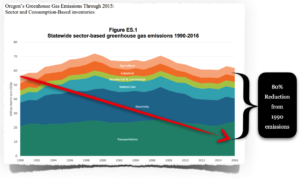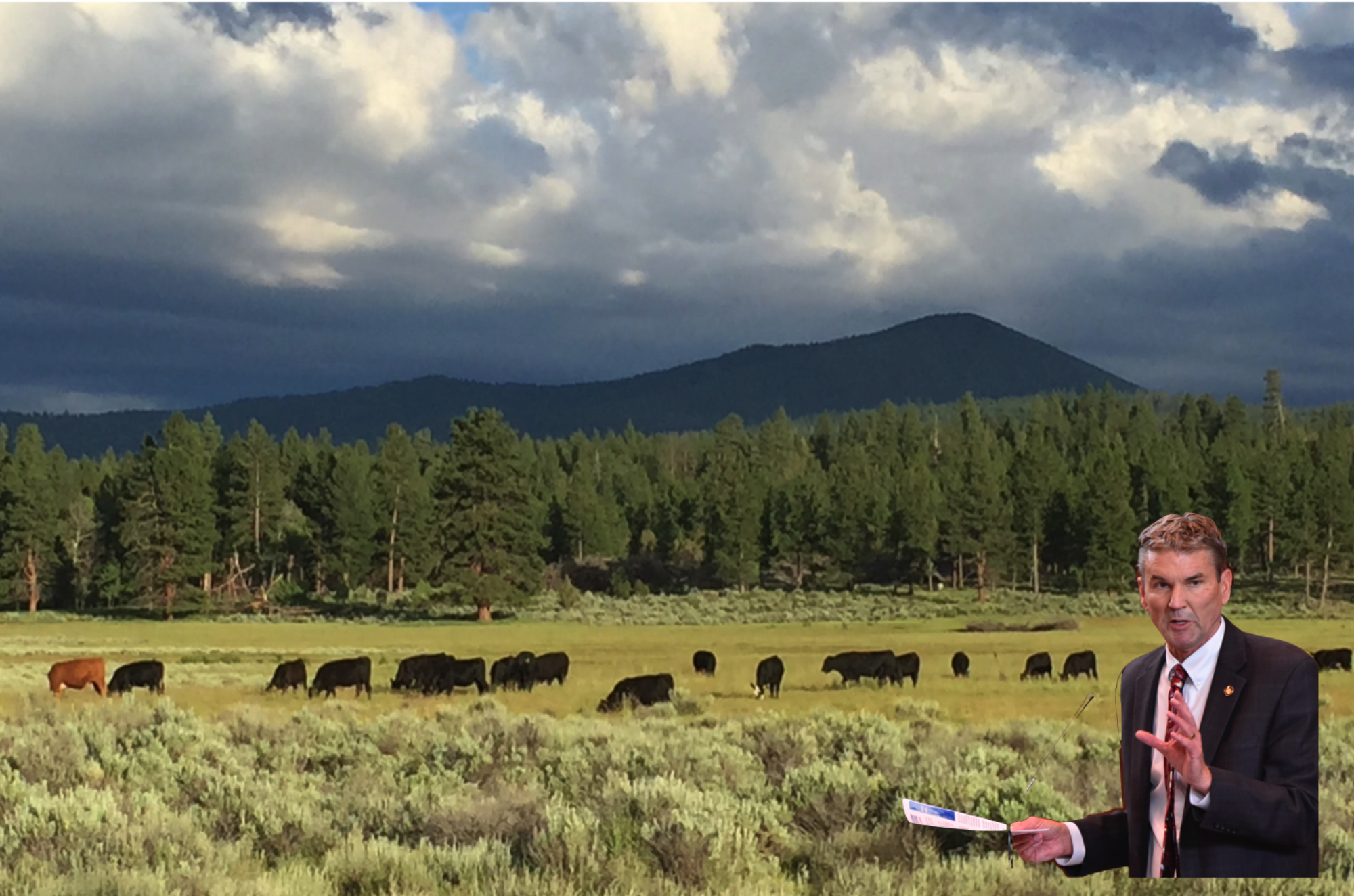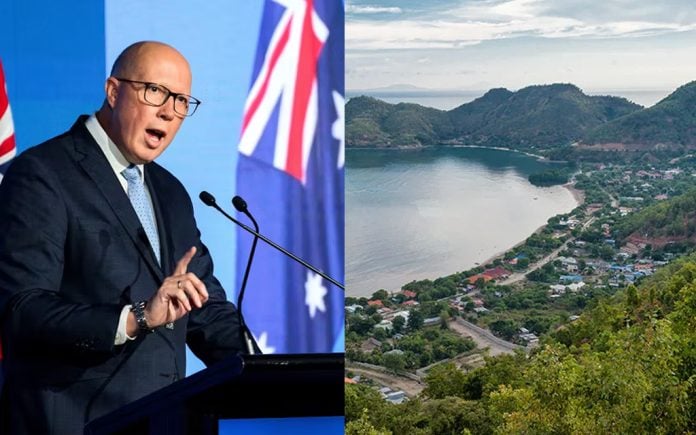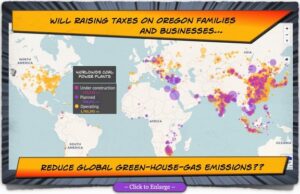Oregon State Legislature sent this bulletin Tuesday, January 21, 2020 by devadmin
Big problems are on the horizon with the Democrat super majority’s Short Session Swindle, otherwise known as the Cap and Trade Bill (LC19). The most troubling is the unrelenting control and absolute authority that will be handed over to non-elected bureaucrats over the 30-year life-cycle of the program.
Bureaucracies are most irksome and troubling when agency and department heads pursue agendas that vary from the goals of those elected to office. Elected officers can be held accountable whereas bureaucrats are free to reign. Administrative agencies become another branch of government. They exercise vast amounts of power and authority. They write rules, compliance obligations, sanctions, penalties and the methods for adjudicating discrepancies.
These issues will explode with exponential fury when the statewide greenhouse gas (GHG) agenda is set for the next three decades by people who will be long-since gone. The alphabet soup of agencies chartered to control Oregon’s productive economy may outlive as many as 7 future governorships. These agencies will saddle businesses with untold complex, capricious and unachievable goals while dispensing favors and wielding power. The bill’s effectiveness will not be judged by the stated emission targets but by the underlying controls handed to the bureaucracies and the dizzying tax revenues.
Cap and Trade schemes are attractive to governments because of a contemptible contrivance that generates revenue through bureaucratically set goals, taxes and penalties. These arrangements become “pay to pollute” virtue signaling efforts. Oregon will make money regardless of GHG emissions compliance. In essence, companies are free to pollute as long as they pay the state’s ransom.
LC19 states, “it is the goal of this state to achieve a reduction in anthropogenic greenhouse gas emissions levels in Oregon:
(a) To at least 45 percent below 1990 emissions levels by 2035; and
(b) To at least 80 percent below 1990 emissions levels by 2050. … to prepare for the effects of [global warming] climate change.” [strike-out in original text]
Global cooling went out in the 80’s. The global warming ‘hockey-stick’ was a disgrace. Now climate change is the new toxically undefined term that is being used to scare our children. Additionally, what scientific evidence proves that an 80% emission level below 1990 levels is the right target for a date 30 years into the future? Why was 1990 chosen?
The date arises from AGENDA 21, a worldview which captured the minds of the statists in Oregon leading up to United Nations Conference on Environment & Development in Rio de Janeiro, Brazil. The AGENDA 21 preamble states, “Its successful implementation is first and foremost the responsibility of Governments. National strategies, plans, policies and processes are crucial in achieving [its goals].”
Disguised under the global banner of foremost government responsibility, we can see the easily abused keywords: “plans”, “processes”, “strategies”, and “policies.” All of which combine to mean that you and I, as individuals, no longer count. It is the bureaucracies and their goals that matter.
If the term “statism” designates concentration of power in the state at the expense of individual liberty or business, then LC19 is a perfect storm of statism. It does not represent a new approach to government. It is not consensus government. It is merely a continuation of political absolutism where those with power keep their power and the rest pay their dues. It is no different than the absolute governments, monarchies, or random tyrannies that have plagued most of human history.

Our Founders, the Declaration and our constitutionally federated Republic argue for the individual, with Jefferson noting, “the mass of mankind has not been born with saddles on their backs, nor a favored few booted and spurred, ready to ride.”
But the super majority sees things differently–they believe it is not up to you to decide whether vaping, vaccines, plastic grocery bags, straws or firearms are appropriate tools for your life and happiness–the government should make that decision for you.
Am I being over-zealous and bombastic?
Here are some recorded statements of AGENDA 21 policy promoters:
- “Current lifestyles and consumption patterns of the affluent middle class – involving high meat intake, use of fossil fuels, appliances, home and work air conditioning, and suburban housing are not sustainable.” – Maurice Strong, Secretary General of the U.N. Earth Summit, 1992.
- “Ski runs, grazing of livestock, plowing of soil, building fences, industry, single-family homes, paved and tarred roads, logging activities, dams and reservoirs, power line construction, and economic systems that fail to set proper value on the environment are not sustainable.” – U.N. Biodiversity Assessment Report.
- “We must make this place an insecure and inhospitable place for capitalists and their projects – we must reclaim the roads and plowed lands, halt dam construction, tear down existing dams, free shackled rivers, and return to wilderness millions of acres of settled land.” – Dave Foreman, Earth First.
Do you wonder why the four dams on the Klamath River have been slated for removal; why the Pelican Butte Ski Resort was never approved; why your farm and water rights are under constant attack; why your electric rates are climbing higher; or, why there are new bike-lanes instead of new auto-lanes?
The current mindset has been in the global-socialist kettle for more than 70 years and has been percolating within Oregon for the past three or four decades. Governor Goldschmidt (D) created the Oregon Task Force on Global Warming in late 1988. The task force was composed of 12 state agencies charged to review current scientific knowledge and assess how global warming could affect the state.
In 2004, an advisory group created by Governor Kulongoski (D), chose the global warming target date, 1990, based on recommendations from another United Nations organization, the Intergovernmental Panel on Climate Change (IPCC). The advisory group notes, “This target is based on limiting CO2 to double the level that existed prior to 1750.”

Doubling the colonial population would get us to a US population of 8 million. This is far below today’s population where 320M people produce nearly $20T in GDP and export food, goods and services to the world.
Despite the hype, there are no renewable technological solutions that can get Oregon’s economy to a carbon neutral, carbon free, or fossil free state. Without high net-energy fuel sources, which solar and wind sources are not, our capabilities will quickly regress toward the past, perhaps, circa 1750.
In their mad rush for money, Governor Brown (D) and the super majority appear unwilling to acknowledge the technological constraints facing top-down bureaucracies. A free-market approach, where men and women can exercise their entrepreneurial spirit and sequester innovative breakthroughs, is the best hope, along with carbon sequestration through good forest management. Good stewardship comes from private resources combined with clear and well-structured property rights. Mobs and crowds are not good stewards, individual are.
Therefore, Oregon should preserve capital accumulation for businesses and families so that our collective prosperity can lead to better stewardship for Oregon and our planet. Otherwise, you and I, our businesses, our jobs, our families and our communities will no longer be welcome in Oregon.
Stand with me and other steadfast Republicans in stopping this bill or be prepared for the “the re-wilding of our communities.”
If we don’t stand for rural-Oregon values and common sense… No one will?

Dennis Linthicum
Oregon State Senate 28




